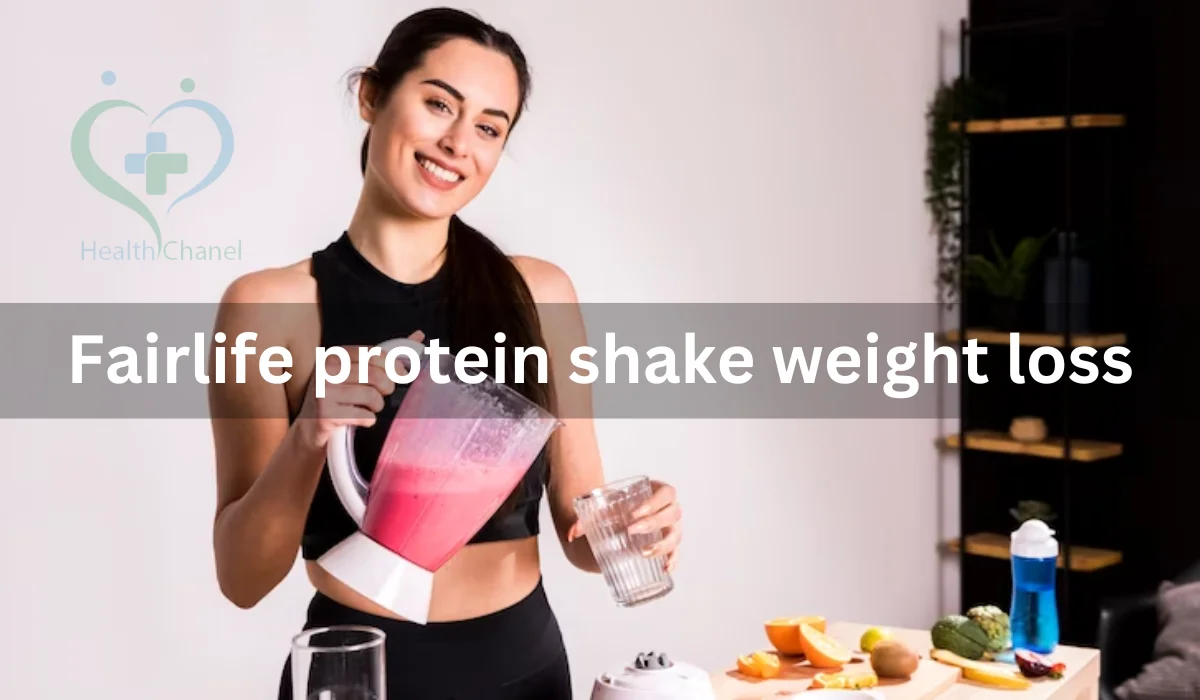“Should women drink protein shakes for weight loss?” is a question that has gained momentum as more women look for sustainable, natural, and convenient ways to manage their weight. Protein shakes, once thought of mainly as a bodybuilder’s tool, are now marketed to women who want to lose weight, maintain lean muscle, and improve overall health. But are they truly effective, and more importantly—are they safe for everyday use?

What Are Protein Shakes?
Protein shakes are beverages made by mixing protein powder with water, milk, or plant-based alternatives. The powders usually come from:
-
Whey protein – a fast-digesting dairy protein rich in essential amino acids
-
Casein – another dairy protein that digests more slowly, helping with satiety
-
Soy protein – a complete plant protein, often used in vegan shakes
-
Pea, rice, or hemp protein – popular plant-based alternatives, often blended for balance
Commercial shakes may also include vitamins, minerals, fiber, or added sugars. Over the past two decades, protein shakes have shifted from gym supplements to mainstream wellness products, often promoted for weight loss and meal replacement.
How Protein Shakes May Support Weight Loss
Protein has several unique properties that make it helpful for weight management:
-
Satiety and Appetite Control
Protein stimulates the release of hormones such as GLP-1 and peptide YY, which help reduce hunger. Multiple studies show that people who consume higher protein feel fuller for longer, which naturally lowers calorie intake. -
Metabolic Boost
The “thermic effect of food” (TEF) is higher for protein than carbs or fat. This means your body burns more calories digesting protein—about 20–30% of protein calories compared to 5–10% for carbs. -
Muscle Preservation During Calorie Deficit
Weight loss often causes muscle loss, which lowers metabolism. Adequate protein helps preserve lean muscle, supporting long-term fat loss and preventing weight regain. -
Convenience and Portion Control
A shake offers a quick, portion-controlled meal that can replace high-calorie snacks or meals, making it easier to stay within a calorie deficit.
What Does the Science Say?
Several studies have investigated protein supplementation in weight loss:
-
A 2018 meta-analysis in the British Journal of Nutrition found that people consuming high-protein diets (including shakes) lost more weight and fat mass compared to standard diets, while preserving lean mass.
-
Harvard Health cautions that while protein shakes can help, they are not a “magic bullet.” Overuse may add unnecessary calories if they are consumed in addition to regular meals.
-
Healthline reports that protein shakes are most effective when paired with exercise, particularly strength training, which maximizes fat loss and muscle retention.
The bottom line: protein shakes can be a supportive tool, but results depend on overall diet and lifestyle.
Practical Guidance for Women
When to Drink Protein Shakes for Weight Loss
-
Morning: A protein shake instead of a high-carb breakfast may reduce cravings later in the day.
-
Post-Workout: Consuming protein within 30–60 minutes after exercise supports muscle repair and recovery.
-
Meal Replacement: Occasionally replacing a high-calorie lunch or dinner with a nutrient-rich protein shake can help maintain a calorie deficit.
How Much Protein Do Women Need?
-
The average adult woman requires 46–56 grams per day, but those aiming for weight loss and exercise may benefit from 1.2–1.6 grams per kg of body weight daily.
-
A typical protein shake provides 20–30 grams, which can cover one-third of daily needs.
Tips for Healthier Shakes
-
Choose powders with minimal added sugars and artificial sweeteners
-
Blend with fiber-rich ingredients (spinach, chia seeds, berries) for better satiety
-
Use unsweetened almond milk or water to cut calories
Safety and Potential Risks
Protein shakes are generally safe, but there are some considerations:
-
Excess Calories: Drinking shakes in addition to meals may cause weight gain.
-
Digestive Issues: Some women experience bloating or gas from whey or lactose-containing shakes.
-
Kidney Concerns: High-protein diets are not recommended for people with kidney disease.
-
Quality Control: Supplements are not strictly regulated in the U.S. Some powders may contain contaminants.
Always consult a healthcare provider before starting regular supplementation—especially if you have chronic conditions.
Should Women Drink Protein Shakes for Weight Loss? – Balanced Perspective
Protein shakes can be a useful supplement to support weight loss, but they should not replace whole foods entirely. The most effective strategy is to integrate them into a balanced lifestyle that includes:
-
Whole-food proteins like fish, beans, eggs, and chicken
-
Regular strength training and cardio exercise
-
Adequate sleep and stress management
-
Long-term, sustainable calorie control
Should Women Drink Protein Shakes for Weight Loss FAQ
1. Do protein shakes actually burn fat?
No. They don’t burn fat directly. Instead, they help control hunger and preserve muscle, making it easier to maintain a calorie deficit.
2. Can I replace all my meals with protein shakes?
Not recommended. Whole foods provide essential fiber, antioxidants, and micronutrients missing from shakes. Meal replacement should be occasional.
3. What’s the best type of protein powder for women?
Whey is well-studied and effective, but plant-based blends (pea, soy, rice) are good options for those avoiding dairy.
4. Are protein shakes safe during menopause?
Yes, with moderation. Protein can help offset muscle loss associated with aging. Always discuss with your doctor if you take medications or have chronic conditions.
5. How long does it take to see results?
Weight loss varies. Some women may notice appetite control and weight changes within weeks, but lasting results depend on consistent lifestyle habits.
Should Women Drink Protein Shakes for Weight Loss Conclusion
So, should women drink protein shakes for weight loss? Yes—when used strategically, they can support weight management by controlling appetite, boosting metabolism, and preserving lean muscle. But they are most effective when combined with a balanced diet, exercise, and healthy lifestyle choices.